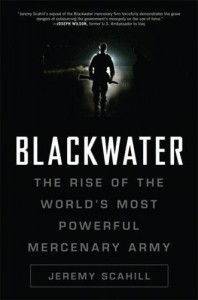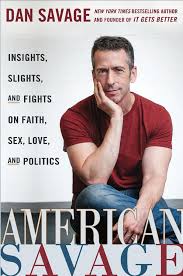Time for me once again to jump into a discussion about a month (or three) late. And before I get into this, I want to point out that I recognize that this discussion comes from a fairly privileged place – one where we’re talking about office workers who generally have (physically, if not mentally) comfortable jobs where they can sit or stand, take a bathroom break when they need it and are paid something more than minimum wage. Concerns related to that type of labor are beyond the scope of this discussion.
You’ve probably heard about the policy change, or even read the memo [http://business.time.com/2013/02/26/memo-read-round-the-world-yahoo-says-no-to-working-at-home/]. If you’ve managed to miss it, in one of her acts as CEO, Marissa Mayer decided that Yahoo employees will no longer be able to telecommute. Whether the employee had an agreement to work from home one or two days a week, or was permanently operating out of a home office, from now on everyone will need to report daily to one of Yahoo’s offices.
The Arguments
Some are in favor of this decision because they assume that most anyone who works from home is lazy and/or unproductive, or is of the personality type that should not expect to be involved in any innovative or interesting work. For example, there’s this article that showed up in my Facebook feed soon after the memo came out (trigger warning: may cause SEVERE eye-rolling and sadness that this person has a widely-read blog) [http://blog.penelopetrunk.com/2013/02/27/yahoo-kills-telecommuting-three-cheers-for-marissa-mayer/]. The line that kills me the most is the one where, right after she acknowledges the argument I will make below, she states “But there is also evidence that top firms don’t need to accommodate those people.” Awesome.
Some are in favor of seeing how it goes, because Ms. Mayer needs to do something to save Yahoo, and this might do it. [http://www.theatlantic.com/sexes/archive/2013/02/marissa-mayers-job-is-to-be-ceo-not-to-make-life-easier-for-working-moms/273584/] I take exception to the idea that’s in the title – that the CEO doesn’t have an obligation to her employees. I’ll get to that below.
Now I do not know anything about being a CEO, except in the U.S. you apparently get to make literally hundreds of times what your employees make [http://www.epi.org/publication/ib331-ceo-pay-top-1-percent/]. I do, however, know what I value, and I believe that actions like this – saving a company by treating its employees like children – go against what I value and what I hope others value as well.
A Caveat or Three
1. I will say up front that I am confused as to why Yahoo’s employees can’t just sign into a Google Hangout or a Lync meeting if they want to involve people in a face-to-face discussion. Will that work every time? No. But the people you need in your meeting are rarely all going to be available at the drop of a hat, whether they are in the office or not.
2. I am not going to support Ms. Mayer just because she is a woman. I am also not going withhold support because she is a woman. I will support her or not support her based on how her actions work to improve the lives of others, understanding that she comes from a different perspective and has determined she has certain duties and responsibilities.
3. I do not accept the premise that the purpose of any organization is to make as much money as possible for shareholders. I recognize that this means some people will stop reading now because I ‘don’t understand capitalism’ or the way the ‘real world’ works. But here’s the thing – I’m actually very interested in how the ‘real world’ works. I’m interested in how the actions we all take actively impact the real world. And I refuse to accept that we’re stuck with this broken system simply because we haven’t found anything better. That’s just uninspired thinking. That’s the kind of thinking that leads a feminist to say it isn’t Ms. Mayer’s job to make life easier for working mothers.
What’s the Big Deal?
Ms. Mayer sent out a memo that made it clear that everyone must work from the office because that is the best / only way for innovation. Perhaps this is actually true for Yahoo specifically; it might help explain the company’s poor performance over the past years. Additionally, numerous articles have cited a Harvard Study about workplace productivity and the benefits of working together.
But these articles often don’t seem to touch on the problem of expecting the exact same work environment to work work for everyone, or at least everyone of value to an innovative company. The ‘then don’t work there’ retort to the idea that someone might perform better working remotely demonstrates fear, unjustified defense of the status quo, and a willingness to forsake innovation and increased productivity to help make people who fit the status quo feel better about their own life choices.
Sweeping statement, I know. But stay will me.
One Size Does Not Fit All
Do you know those people who wear their work hours as a badge of pride? They may also be the same people who have ‘never taken a sick day,’ (thus being responsible for most of the colds that spread around your office) or who roll their eyes if you leave at 6:30, since they plan to stay until AT LEAST 8. Interesting fact – working longer than eight hours a day might actually kill you [http://aje.oxfordjournals.org/content/early/2012/09/04/aje.kws139.abstract] and it doesn’t make you more productive [http://www.salon.com/2012/03/14/bring_back_the_40_hour_work_week/]
But Yahoo’s decision isn’t necessarily about longer hours, is it? No, but I shared those articles to point out that the status quo – working long hours and putting in ‘face time’ so your boss knows you are in early and leaving late – not only doesn’t achieve what people claim it does, but can actively hurt both the worker AND the employee. You’d think companies that claim to be so efficient and interested in making money would wise up. But no, instead you have people like Ms. Mayer who seem more interested in regressing so that they can send a message and look like they are doing something productive as opposed to … actually doing something productive.
In addition to removing the ability of some people to work in an environment that works best for them, the implication is that the job is what matters the most.
I disagree.
Because here’s my not-at-all-novel or radical idea: work is not all that matters, and while society should not actively punish people who live to work, it also should not punish people who recognize that work is just one part of who we are as people.
I’m not suggesting that people who are in the midst of a very busy time at work should just get up at 5 p.m. and leave. But these same people shouldn’t expect a cookie if they stay an extra two hours every night during regular operations. If they have too much work to do in the allotted time, then that means the company has more work than employees and needs to hire more people.
What? Hire more people? Please.
I know. But really, it’s only an absurd notion if you accept the premise that we should all just accept that we’re going to have work 10 hour days with an hour-long commute each way. It happens because enough of us allow it to happen. It happens because when Ms. Mayer makes this kind of move, people applaud her for ‘taking decisive action’ instead of encouraging her to look for ways to include diversity in the workplace.
Yup. I said it. Diversity. Not just talking about men and women, or racial, ethnic or economic diversity. I’m talking about diversity of work styles. I’m talking about the people who get energy from being in groups and talking things out AS WELL AS the people who think things through, sit and reason, and get energized when they are able to work alone. The idea that there is more value in the former is preposterous and should be discarded by people as high up as Ms. Mayer.
Why do we value the people who are outspoken over the people who are introspective? In the comments section of the hideous article I linked above, the author says that no innovative company wants an introvert working for it. Um … I call bullshit. They may not be the workers who fit the CEO’s ‘vision’ of how everyone should work just like them, but they are ones doing work just the same. If whole swaths of the population are disregarded because they aren’t as vocal or as in-your-face as others, then as a society we are really missing out on the innovation and creativity those people could bring to the table. Not to mention that the percent of introverts in the population varies from 25%-50%. Can any CEO claim that it makes sense to disregard up to 50% of the potential workforce?
But what about the lazy people taking advantage of telecommuting policies?
Direct them to different work or, if they really can’t be trusted to do work from home or in the office, fire them for performance issues. There are going to be lazy people everywhere and it’s bordering on the absurd to suggest that a lazy person will stop being lazy once they are in the office. Perhaps for the first few days or weeks they will be on their best behavior, but it’s pretty easy to waste time while looking busy. If a specific employee is not performing as expected and directed, the manager should speak with that employee. If there’s any laziness here it seems to be with the CEO, who is trying to do with one memo what management should have been doing with people individually.
But no one has a right to telecommute, so isn’t this kind of a silly discussion?
No. Because while no one has a ‘right’ to telecommute, how companies chose to treat their employees affects us all. I don’t use any Yahoo products, but I know people who do. I might even know people who work for Yahoo, or who have family or friends who work there. And while some jobs do not lend themselves to flexibility in terms of where the person can do their job (hello, bartender), society should embrace the ones that do, because we are not all the same, and we shouldn’t all be expected to work in the same way.
I have a job that allows for some flexibility. I can adjust my hours so that I have a day off every two weeks. It’s pretty amazing, and allows me to focus while at work and get errands, appointments and other tasks done on that day off. Our office also allows for some limited telecommuting. That helps when I have an appointment that can’t be changed that is three blocks from my house at noon on a Wednesday. Instead of wasting an hour going back and forth to the office, I can work at home, maintain nearly regular hours (instead of staying at work until 7 or 8), and still fulfill my obligations as an employee and a member of society. Because I don’t just work for my organization – I also am a member of the community, the partner of an awesome man, a caretaker to my cats and a friend and relative to others. What I do to earn money is part of how I contribute to this world, but it is not the only way I contribute. I think corporations forget that some times.
At my office no one works from home all of the time, but many are able to work from home one day a week. And you know what? We do pretty fantastic work there. Hopefully you won’t ever have to encounter it, but I can say quite honestly that what we do will matter to you if you live where I live and a disaster strikes. And we’re able to do that because we are able to hire great people who do not just live for this job.
That’s right! People who DO NOT live for work are actually making amazing contributions. They are able to see the bigger picture, not just how their one little piece of the puzzle matters. It’s fantastic how someone who has a child to pick up after school or a cat who needs to go to the vet learns over time to cut to the chase. To be efficient with their time while allowing others to work in the way that works best for them. We should value those qualities in not just our colleagues, but in our fellow humans.
But what about the shareholders?
Stop it. I own stock (actually, I own mutual funds, so I guess it is possible I own 1/1000 of a percent of a share of Yahoo). And as much as it is within my control, I try to invest responsibly, with companies and organizations that are interested in more than just money. Companies that are interested in the employees – the people doing the work – as much as the shareholders. It’s not an absurd concept – what should matter is how what a company is doing affects us ALL. Not just the customer, or the employee, or the shareholder. A company can survive and actually THRIVE by treating its employees well, producing a quality product or service, and not fucking up the environment. I don’t tolerate companies pouring sludge into the groundwater – why should we tolerate companies who pour that same metaphorical sludge into their workers?
As I state above – I’m not a CEO, or even a senior manager. I have witnessed the tough decisions that need to be made in the private sector, with senior and executive staff feeling the stress of the desire to GROW MORE FASTER FASTER. I see it with the organizations some friends work at, where what matters is not the quality of the product but the deadline that has to be met so that the people who own the stock can see that percentage point tick up slightly. It’s not cool, and if more of us who can afford to used our wallets to buy from the companies that treat their employees, or (if its possible given our financial situation) turned down jobs at companies that think employees are children to be managed and not contributing adults, maybe we could start to make a dent. Maybe. At the very least, we should stop acting like the only employees who matter are the ones who are able to work in one specific environment.





